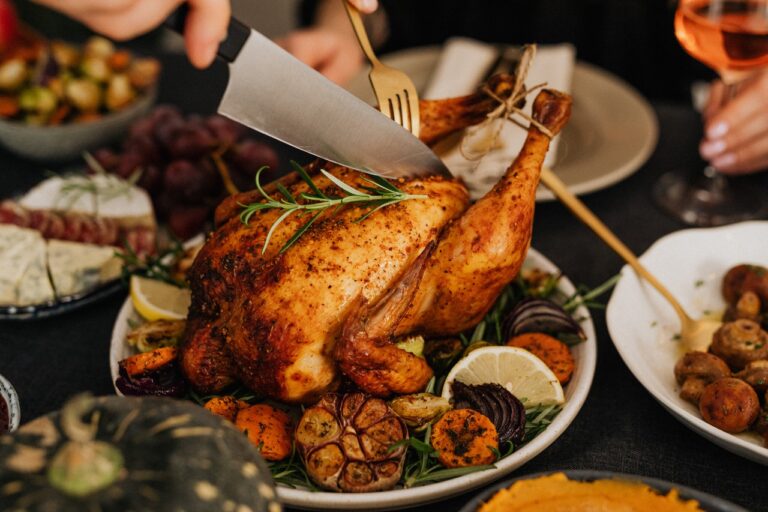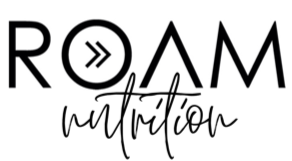Derail the holidays
Happy Holidays!
The holidays can be exciting and nerve racking all at the same time. Excited to spend time with family, getting into the spirt of the season, attending holiday parties, gift giving, and all the food. I love the holidays, Christmas is especially my favorite, and I always love eating all of the holiday dishes. Who’s with me?
Conversations around the dinner table typically brings holiday weight loss talk and this can be damaging to those going through an eating disorder recovery process or to someone that has been on a routine of letting intuitive eating into their lives. The recovery process is a slow step by step progress overcoming fears, anxiety, depression and/or a variety of other traumatic events. A new intuitive eater is still learning to listen to their body, acknowledging satisfaction, breaking the rhythm of diet behavior and accepting foods once banned by diet rules. The holidays can derail the progress made by those working hard to overcome and live a healthy relationship with foods.
Here are some tips to stay on track:
- Structure
- Shift the focus
- Set boundaries
- Support System
- Self-Compassion

Structure
The weeks leading up to Thanksgiving, Christmas and New Year can get overwhelming with schedule changes. If you’re in school, you may have finals, projects, sport competitions, and traveling to see family. If you’re a working man or woman, you are juggling work, holiday shopping, picking up the kids from school, last minute business trips, trips to see the family and/or trips to the grocery store for the holiday meal prep.
Try to keep your day structured. If you normally work out in the morning, don’t stop. If you meditate before bed, keep meditating. If you meal prep your day, keep prepping. If you have therapy sessions, keep showing up. Keeping your day(s) as close to your normal routine as possible will help decrease the stress of the holiday season. Your body actually adapts to your schedule and if the holidays derail that structure, it can be perceived much more challenging to keep to the routine. The spirt of the season is to find happiness in the small things – keep doing the small things that help you stay centered.
Shift the focus
At holiday parties, big meals are served, laughter fills the rooms, little kids running every where, and someone, probably grandma, makes a comment about your weight or cousins taking about their new diets they are starting after the holidays. Comments about physical appearance or diet talk happen unintentionally, which can be triggering to someone with eating issues or a person attempting to listen to their body through intuitive eating.
This year try to shift the focus when you experience an unwanted comment or diet talk. Kindly state how you are working though some eating triggers and how comments about body weight, how much in on the plate or diet talk does not allow for advancement with a healthy relationship with food. Shifting the focus can be challenging if you don’t wish to share your triggers with others. If so, simply request to speak about another subject rather than diets or disengage from the conversation. You can say you need some “air” and exit the conversation altogether.
Set Boundaries
Setting boundaries with family and friends can seem odd at first; however, once you make your boundary known it should feel more comfortable. For example, when you are young it is easy for a family member to make you a plate and say you can’t leave the table until you finish it. As a young adult or middle aged adult, you get to decide for yourself; yet, there is always grandma or aunt Betty that still encourage the full plate or seconds. During this time, you can set your boundary by saying “Grandma, your food is amazing as always; however, I am listening to my body now and it says I am full.” Maybe you’re at a fancy dinner party, the waiter serves you a 5 course meal, and you ate before you even arrived to the party. You don’t want to be rude and decline a course but it is just too much, you’re already full. It’s polite to simply say, “no, thank you.” Remember, setting the boundary doesn’t have to be announced, it can simply be a statement and a smile.
Support System
Engaging in a support system of close family, therapist, dietitian, best friend, or spouse. Keep your regular meetings with your therapist and dietitian during the holidays. Choose the coping techniques you believe will help you through the various settings you will be immersed in. Speak up to your support system if and when you experience unease or triggered. The holidays are hard for those experiencing an uncomfortable relationship with food; however, you don’t have to “suffer” alone during this time. Ensuring a support system before the chaos begins can give you the boost of confidence you need to enjoy the season without getting derailed.
Self-Compassion
The holidays bring the sprit of giving. Give yourself self-compassion this holiday season. There will be many opportunities for the food police voices or eating disorder voice to wreck havoc in your head. This voice can belittle you at each meal, the thought of each meal, the moment you see the dessert, and/or the moment a family member comments on your physical appearance. Kindly remind yourself: you are strong, you are structured, you can respectfully set boundaries, and you are supported in your journey. Remember, the compassion you show your loved ones during this season of giving, you can also show yourself. You’re worth it.


